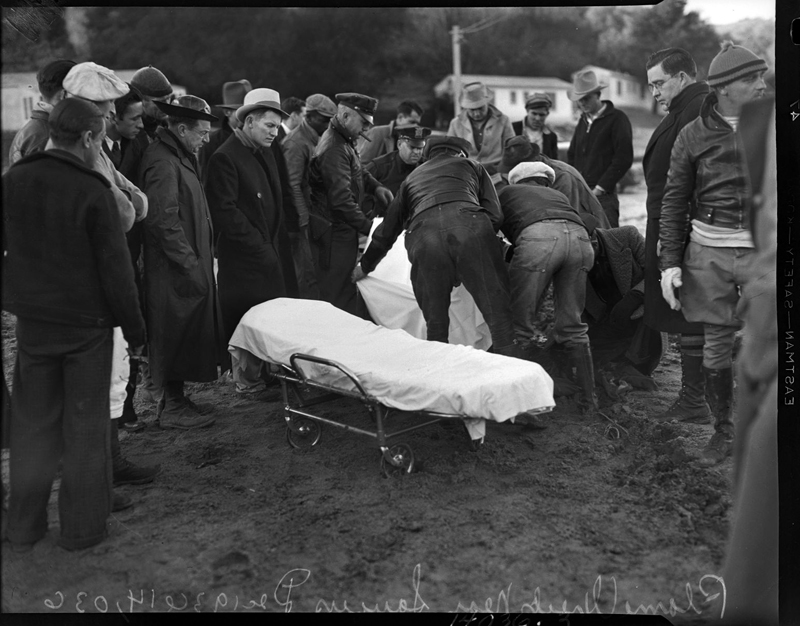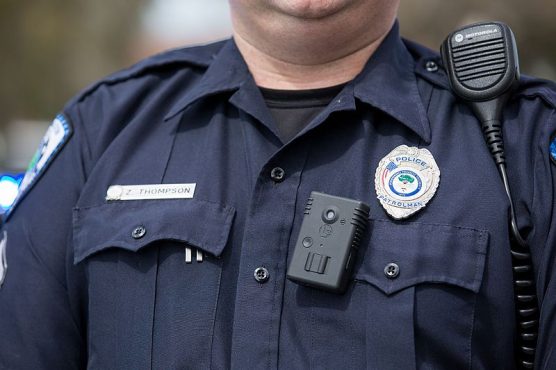SACRAMENTO – California Governor Gavin Newsom signed a flurry of criminal justice reforms Tuesday evening, including measures that bar law enforcement from using facial recognition software in body cameras, speed up the expungement process and end certain sentencing enhancements.
“I am signing more than two dozen bills that give hope to those that have earned a second chance in our communities, and also support victims of crime,” Newsom said in a statement. “These bills show a new path to ensure our state moves closer toward a more equitable criminal justice system.”
Under Assembly Bill 1215, law enforcement agencies will have to wait at least three years before they can equip officers with body cameras installed with biometric surveillance technology that can systematically take and store photos of Californians.
The American Civil Liberties Union and other critics of facial recognition technology want to keep law enforcement agencies from installing the software on officer body cameras until developers such as Amazon and Microsoft can work out the kinks. The group claims the budding technology is prone to misidentifying minorities and is unfit for deployment on California streets.
“Rather than facilitating the expansion of a discriminatory surveillance state, California must invest its precious resources to foster free, healthy communities where everyone can feel safe – regardless of what they look like, where they’re from, how they worship or where they live,” said ACLU of Northern California attorney Matt Cagle in a statement.
Though the measure was widely opposed by law enforcement groups who painted the ban as “heavy-handed,” the measure cleared both chambers with bipartisan votes.
Supporters backed their arguments with a series of ACLU studies that used Amazon’s facial recognition software, called Rekognition, to cross-check 120 California legislators against a database of 25,000 publicly available mugshots. The algorithm falsely identified 26 of the lawmakers – including AB 1215 author Assemblyman Phil Ting.
Another test found Amazon’s product incorrectly matched 28 members of Congress to the mugshots of other people.
In light of the studies, Amazon defended its software and accused the ACLU of rigging the test to create mismatches.
Ting, D-San Francisco, says his bill will help keep cities like San Francisco and Los Angeles from becoming “police states” and give technology companies time to develop more reliable software. The measure goes into effect in January and sunsets in 2023.
“The public wanted their officers and deputies to use body cameras to provide accountability and transparency for the community. The addition of facial recognition technology essentially turns them into 24-hour surveillance tools, giving law enforcement the ability to track our every move. We cannot become a police state,” Ting said in a statement.
City councils in San Francisco, Oakland and Somerville, Massachusetts, have voted to ban government use of facial surveillance, and the Massachusetts Legislature is considering a similar moratorium.
Also included in the 25 criminal justice reform bills signed by Newsom Tuesday is a measure that tasks the state with implementing a system that will automatically expunge certain arrest records.
AB 1076, also by Ting, requires the Department of Justice to seek out the records of those who have served their time and begin expungement. Currently, individuals in most counties must petition directly to the court to begin the process.
Ting’s bill excludes registered sex offenders or individuals with pending criminal cases and will apply to people arrested after Jan. 1, 2021. Republican lawmakers largely voted against the bill, but it passed due to Democratic majorities in both chambers.
The Department of Justice calculated that the bill will cost more than $13 million from fiscal years 2019-2024 to implement, and the Judicial Council estimated it would cost the courts between $460,000 and $880,000 annually.
Supporters say the process will reduce recidivism rates and make it easier for people to apply for jobs and public housing.
“Many Californians living with past criminal records have completed their sentences and paid their debts, yet still face thousands of legal prohibitions preventing eligibility for jobs, housing and many other keys to family stability and economic mobility,” Lenore Anderson, president of Californians for Safety and Justice, said in a statement. “It’s time for meaningful rehabilitation.”
Other notable criminal justice measures signed Tuesday:
Senate Bill 136: Ending a longstanding one-year sentencing enhancement applied to an individual’s base sentence for each of their prior prison or felony jail terms served. The bill’s author said in a statement after his bill was signed that the enhancement was a major contribution to California’s mass incarceration crisis. “We need to hold people accountable for their behavior, but that doesn’t mean destroying people’s lives. California has a laundry list of nearly 150 sentence enhancements. We don’t need this one,” said State Senator Scott Wiener, D-San Francisco.
AB 484: Ending a mandatory requirement that judges impose 180 days jail time prior to probation for possession of drugs like powder cocaine, crack cocaine and heroin.
SB 22: Aims to reduce backlogs by forcing law enforcement agencies to submit rape kits to a crime lab within 20 days and have them tested no later than 120 days after receipt. “Survivors should never have to wait years or even decades for their rape kits to be tested and it is outrageous that collected evidence could ever sit on a shelf untested,” State Senator Connie Leyva said after her bill cleared the Legislature last month.
SB 310: Allows residents with a prior felony conviction to serve on a jury, excluding registered sex offenders or individuals on any form of felony supervision. More than 20 states allow people with felony convictions to serve on juries and supporters say it will make the judicial system fairer for minorities. “As a black man and public defender, I have witnessed firsthand the damage caused by the systemic exclusion of people with felony convictions from jury service,” Alameda County Public Defender Brendon Woods said. “This bill is a historic step toward achieving racial equity in California.”
AB 45: Prohibits county jails and state prisons from charging inmates copays for medical and dental services. The California Department of Corrections stopped charging inmates a traditional $5 copay earlier this year, and now the ban is codified in state law.
— By Nick Cahill
Like this:
Like Loading...
Related





 Tweet This
Tweet This Facebook
Facebook Digg This
Digg This Bookmark
Bookmark Stumble
Stumble RSS
RSS


























REAL NAMES ONLY: All posters must use their real individual or business name. This applies equally to Twitter account holders who use a nickname.
0 Comments
You can be the first one to leave a comment.